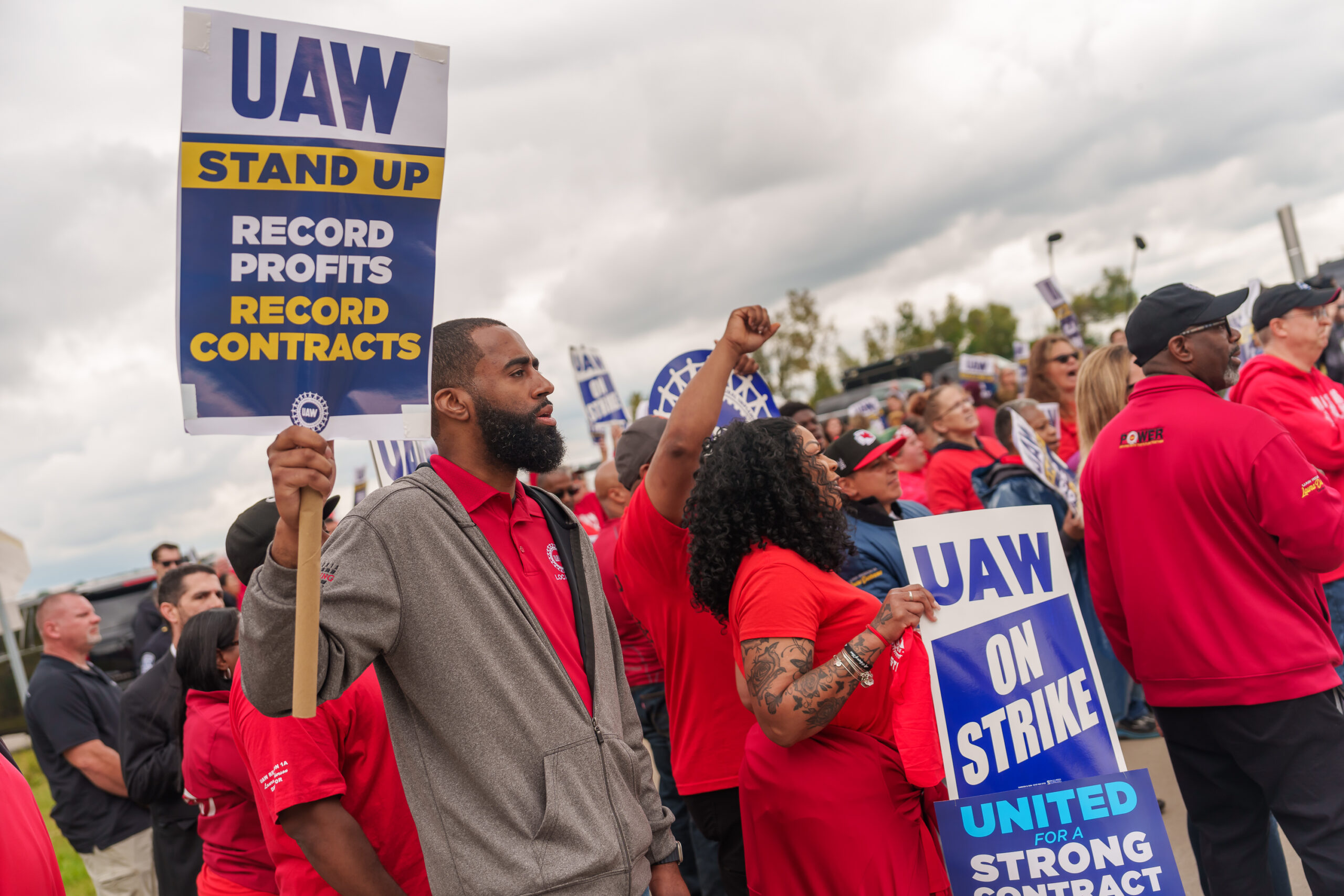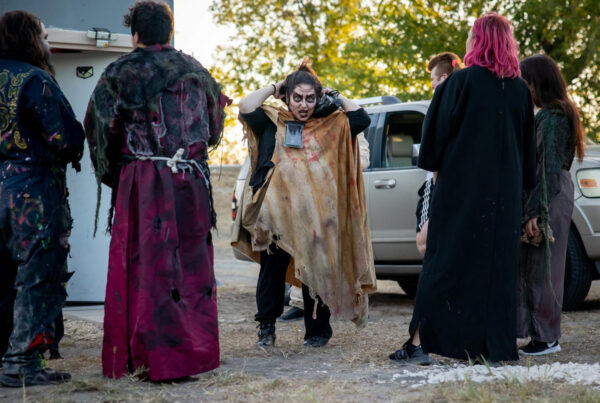After almost seven weeks, one of the most dramatic labor actions in decades appears to be coming to a close.
The United Auto Workers has won a tentative contract agreement with the “Big 3” automakers in the U.S. – Ford, General Motors and Stellantis. Workers still have to vote to accept the terms of the contracts, but the deals include key items the union was fighting for, including pay raises and cost-of-living adjustments.
Micheline Maynard, a business journalist and author of the book “The End of Detroit: How the Big Three Lost Their Grip on the American Car Market,” said it makes sense for a union to walk into the bargaining process with lofty goals.
“You never get everything that you ask for in bargaining. And I think the UAW knew that,” she said. “But it’s kind of like a little kid dreaming about being a baseball player. Why shouldn’t you dream about yourself hitting the walk-off home run in the World Series? You might as well aim high, you know, and you might have to settle for less. But those dreams can sometimes become reality. And I think some of that has happened here with these new UAW contracts.”
On the surface, Maynard said, the biggest win for the union was wages.
“The UAW has won a 25% wage increase for most of its veteran workers,” she said. “They have gotten back their cost-of-living allowance, which was a gain that the union won decades ago and which went away when the Obama administration did the bailout of the auto companies. And a lot of people thought COLA, which it’s called, would never come back. So that’s a significant victory. And that was a historic gain. They lost it, and now it’s back.”
» GET MORE NEWS FROM AROUND THE STATE: Sign up for Texas Standard’s weekly newsletters
The union was not able to work a shortened work week into the contracts, but the contracts do eliminate a lot of the tiered worker system, which was another goal of the strike, Maynard said.
“There were all kinds of tiers within General Motors, because it was such a big company, that meant that you had kind of an uneven workforce,” she said. “If somebody was hired before 2007, they got the highest wages and the most generous benefits. But if they had been hired since 2007 and were hired as temporary workers, they were at different levels. And the UAW has always been about equality for everybody in the union.”
The UAW’s strategy throughout the strike was to increase the pressure on the companies by staging “stand up” actions at different plants and facilities. As the strike went on, the union planned actions at plants that made higher-value cars like SUVs, including in Arlington.
“I think the decision to strike at Arlington was absolutely crucial to turning this thing around for the UAW. And over the weekend, they added the plant in Spring Hill, Tennessee, which used to be Saturn and is now just another General Motors plant,” Maynard said. “The UAW is showing no reluctance to ratchet up the pressure on GM. And they still have a couple of cards to play. They didn’t take out plants in Flint, Michigan. And clearly General Motors got the message and said, ‘okay, what’s it going to take?’”
Another issue the union had concerns about was addressed – but not fully settled – in the new contract language, according to Maynard.
“There are some steps forward in the EV (car) situation, but it isn’t completely taken care of. And I think part of the reason for that is that especially the electric vehicle batteries are going to be built in joint venture plants with Korean companies. And so you can’t really make decisions on the part of those JV plants until they’re up and running,” she said. “One of the compromises that they reached at Ford was to say, we’ll send laid-off workers … to the EV battery plant. And if we don’t have enough UAW members representing the plant, we’ll have an election there.
“And so it’s a kind of a, I would call, squirrely compromise. I mean, it isn’t that they’re all going to be UAW members, but many of them will be UAW members. And so it got the UAW into those battery plants. And I think that was the most important thing: to just get your foot in the door.”












